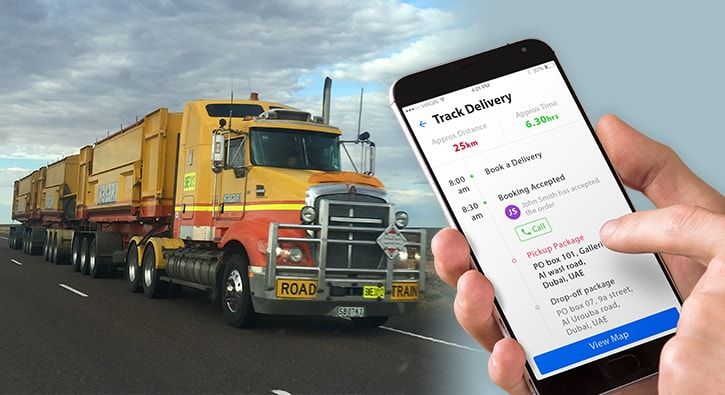In an era where efficiency and real-time data are pivotal to operational success, modern vehicle tracking technologies have emerged as critical tools for businesses across various sectors. From logistics and transportation to public safety and personal use, vehicle tracking systems offer a plethora of benefits, including enhanced fleet management, improved security, and optimized resource allocation. This article delves into the current state of vehicle tracking technologies, exploring their components, benefits, and the promising future prospects they hold.
Overview of Vehicle Tracking Technologies
Vehicle tracking technologies have evolved significantly over the past few decades. Initially, basic tracking systems relied on simple radio frequency identification (RFID) and rudimentary GPS devices. Today, advanced tracking solutions integrate multiple technologies to provide comprehensive, real-time data and analytics.
Key Components of Modern Vehicle Tracking Systems

- Global Positioning System (GPS): GPS remains the backbone of most vehicle tracking systems. It uses a network of satellites to determine the precise location of a vehicle. Modern GPS devices are highly accurate and can provide real-time data on a vehicle’s position, speed, and direction.
- Telematics: Telematics combines telecommunications and informatics to send, receive, and store information related to vehicles. It enables the collection and transmission of data such as vehicle location, engine diagnostics, and driving behavior. Telematics devices are essential for real-time tracking and monitoring.
- Geofencing: Geofencing is a technology that creates virtual boundaries around a specific geographic area. When a vehicle enters or exits these boundaries, the system triggers alerts or actions. Geofencing is used for various applications, including route adherence, unauthorized use prevention, and location-based services.
- Internet of Things (IoT): IoT connects physical devices to the internet, enabling them to communicate and share data. In vehicle tracking, IoT devices can monitor various parameters such as fuel levels, tire pressure, and engine health, providing a holistic view of vehicle status.
- Big Data and Analytics: Modern tracking systems generate vast amounts of data. Big data analytics processes this data to provide actionable insights. Predictive analytics can forecast maintenance needs, optimize routes, and improve fuel efficiency.
Benefits of Vehicle Tracking Technologies
The integration of these technologies into vehicle tracking systems offers numerous advantages, transforming how businesses manage their fleets and operations.
Enhanced Fleet Management
Vehicle tracking systems provide real-time visibility into fleet operations. Managers can monitor vehicle locations, routes, and schedules, ensuring that operations run smoothly and efficiently. This visibility helps in optimizing routes, reducing fuel consumption, and minimizing idle time, leading to significant cost savings.
Improved Safety and Security
Tracking technologies enhance vehicle and driver safety. Real-time monitoring of driving behavior—such as speeding, harsh braking, and rapid acceleration—allows for the implementation of safety protocols and driver training programs. Additionally, GPS tracking can assist in locating stolen vehicles, recovering assets quickly, and reducing theft-related losses.
Better Resource Utilization
By providing insights into vehicle usage, tracking systems help in better resource allocation. Companies can identify underutilized vehicles, plan maintenance schedules to prevent breakdowns, and ensure that vehicles are used efficiently. This leads to longer vehicle lifespans and reduced operational costs.
Regulatory Compliance
Many industries face stringent regulatory requirements regarding fleet management, driver hours, and vehicle maintenance. Vehicle tracking systems assist in maintaining compliance by providing accurate records and automated reporting. This reduces the administrative burden and minimizes the risk of non-compliance penalties.
Enhanced Customer Service
For logistics and delivery companies, vehicle tracking ensures timely deliveries and accurate ETAs. Customers can track their shipments in real-time, enhancing transparency and trust. Improved route planning also enables faster and more reliable service.
Future Prospects of Vehicle Tracking Technologies
The future of vehicle tracking technologies is promising, with several emerging trends and innovations poised to further revolutionize the industry.
Integration with Autonomous Vehicles
As autonomous vehicle technology advances, integrating tracking systems will be crucial for managing these fleets. Autonomous vehicles will generate massive amounts of data, requiring sophisticated tracking and analytics systems to ensure safety, efficiency, and regulatory compliance.
Advanced Analytics and Machine Learning

The use of advanced analytics and machine learning will become more prevalent in vehicle tracking. Predictive maintenance, optimized routing, and driver behavior analysis will become more accurate and reliable, driven by complex algorithms and large datasets. Machine learning models will enable systems to learn from historical data and improve decision-making processes over time.
Enhanced Connectivity with 5G
The rollout of 5G networks will significantly enhance vehicle tracking capabilities. 5G offers faster data transmission speeds, lower latency, and greater connectivity. This will enable real-time data processing and more reliable communication between vehicles and central systems, improving overall tracking accuracy and responsiveness.
Expansion of IoT Applications
The integration of IoT in vehicle tracking will continue to expand. More sensors and connected devices will be deployed to monitor various aspects of vehicle performance and environmental conditions. This will provide deeper insights into vehicle health and operation, allowing for more proactive maintenance and management.
Blockchain for Enhanced Security
Blockchain technology offers the potential to enhance the security and transparency of vehicle tracking systems. By creating an immutable ledger of all tracking data, blockchain can ensure data integrity and prevent tampering. This is particularly important for regulatory compliance and trust in shared mobility solutions.
Sustainable and Green Initiatives
As the focus on sustainability grows, vehicle tracking technologies will play a key role in reducing environmental impact. Tracking systems can optimize routes to minimize fuel consumption, monitor emissions, and support the transition to electric and hybrid fleets. This will help companies meet sustainability goals and reduce their carbon footprint.
Modern vehicle tracking technologies have transformed the way businesses manage their fleets and operations. By providing real-time data, enhancing safety, and improving resource utilization, these systems offer substantial benefits across various industries. The future holds even greater promise, with advancements in autonomous vehicles, machine learning, 5G connectivity, IoT, blockchain, and sustainability initiatives set to further revolutionize the field.
As these technologies continue to evolve, companies that adopt and integrate advanced vehicle tracking solutions will be better positioned to achieve operational excellence, enhance customer satisfaction, and drive long-term success.
